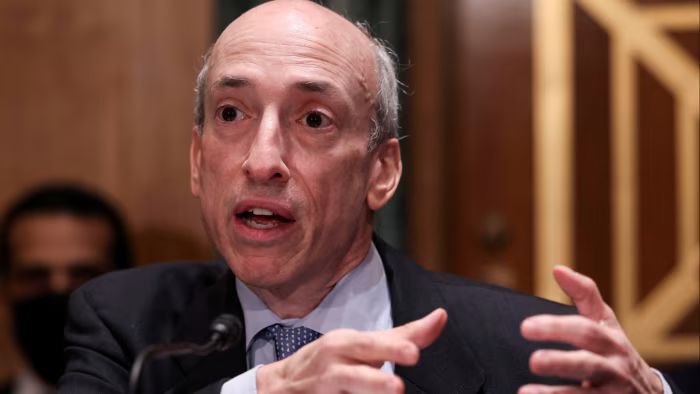
Investors and bankers are lining up to raise billions of dollars for new special purpose acquisition companies, defying predictions the asset class would be wiped out after a series of scandals and a regulatory crackdown.
Spacs, colloquially known as blank cheque companies, raise money in an initial public offering before searching for a company to acquire. New fundraising has been improving slowly this year, rising about 20 per cent over the same period of 2023 to $3.1bn, according to Dealogic, and advisers are expecting activity to pick up pace.
More than 20 Spacs have filed IPO documents since the start of June, targeting a combined $4.3bn in fundraising. That compares with just $1.8bn raised in the entire second half of 2023.
“There is a lot of receptivity from IPO investors for the product. I think it is a good time [for Spac founders], particularly if you’ve been successful in the past,” said Tina Pappas, a managing director at Jefferies who leads the bank’s Spac business. “I don’t think we’ll see the likes of 2021 again . . . but I do think that the pace of Spac IPOs will accelerate through the rest of this year and into next year.”
Spacs surged in popularity during the coronavirus pandemic, as low interest rates and skyrocketing share prices fuelled investor demand and encouraged hundreds of early-stage companies to combine with Spacs as a way to go public faster and more cheaply than through a traditional IPO.
However, fundraising cratered after 2021 due to a combination of rising rates and poor performance by many of the combined companies.
The boom and bust also led the Securities and Exchange Commission to announce a series of new regulations, though the final version of the rules watered down some of the most contentious proposals.
Supporters acknowledge the industry will have to work hard to win over sceptical companies and investors, but believe they will be helped by the bottleneck in mainstream IPOs as the market regains momentum after a long slowdown.
“There are over 1,300 unicorns out there, and the exit route on both the IPO side and the strategic M&A side has been closed,” said Jimmy Fang, chief operating officer at Spac sponsor Explorer Acquisitions. “Even in the hottest tech IPO market ever, you’re unlikely to get more than 150 IPOs in one year. What happens to the remaining companies? . . . I’m not saying Spacs will fill the entire void there, but I certainly believe they can fill a sizeable amount.”
Explorer is planning to raise funds for a new Spac in the fourth quarter of 2024 or the first quarter of 2025.
Instead of celebrity founders targeting highly speculative sectors such as flying taxis and space tourism, most new deals are being led by specialist repeat issuers who are on the lookout for more staid companies that want to go public but may struggle to stand out in a crowded market.
Raj Shah, a portfolio manager at Stoic Point Capital Management, said a revival in less flashy companies listing through Spacs could create “a unique opportunity for public investors”.
“There are trillions of dollars in PE and VC-backed [businesses] in line to go public and not all are going to secure a spot up front with Goldman or Morgan Stanley . . . we would anticipate several high-quality businesses and dealmakers to explore other [ways to go public].”
Despite the increased optimism, however, some Spac founders — known as sponsors — have been taking steps to reduce their risks after losing out during the earlier bust.
Sponsors make an initial investment to fund a Spac’s operations and due diligence while it searches for a target, and are paid in deeply discounted “founder shares” in the new company. That can earn them huge profits after a successful merger, but if the Spac fails to find a target, the sponsors lose their whole investment while the IPO investors get their money back with interest.
More than 350 Spacs liquidated without finding a deal since the start of 2022, according data from Spac Research. In response, many recent deals were structured so that outside investors fund the majority of the sponsor’s initial investment, in exchange for a small portion of the founder shares.
The practice is controversial. Some fear it will fuel the perception that Spac founders are looking to make a “quick buck” without having enough skin in the game. A banker who has worked on several such deals, however, said it was reasonable to share some risk and “create alignment” between sponsors and their IPO investors.
Fang said he hoped Spacs would eventually be able to follow a similar trajectory to another four-letter word in the capital markets — “junk” bonds.
“Spacs might need to be rebranded to something a little more pleasing. Junk bonds eventually got rebranded to high-yield. Leveraged buyouts became private equity. Something along those lines that shifts away the perception of seediness into something a bit more legitimate.”


